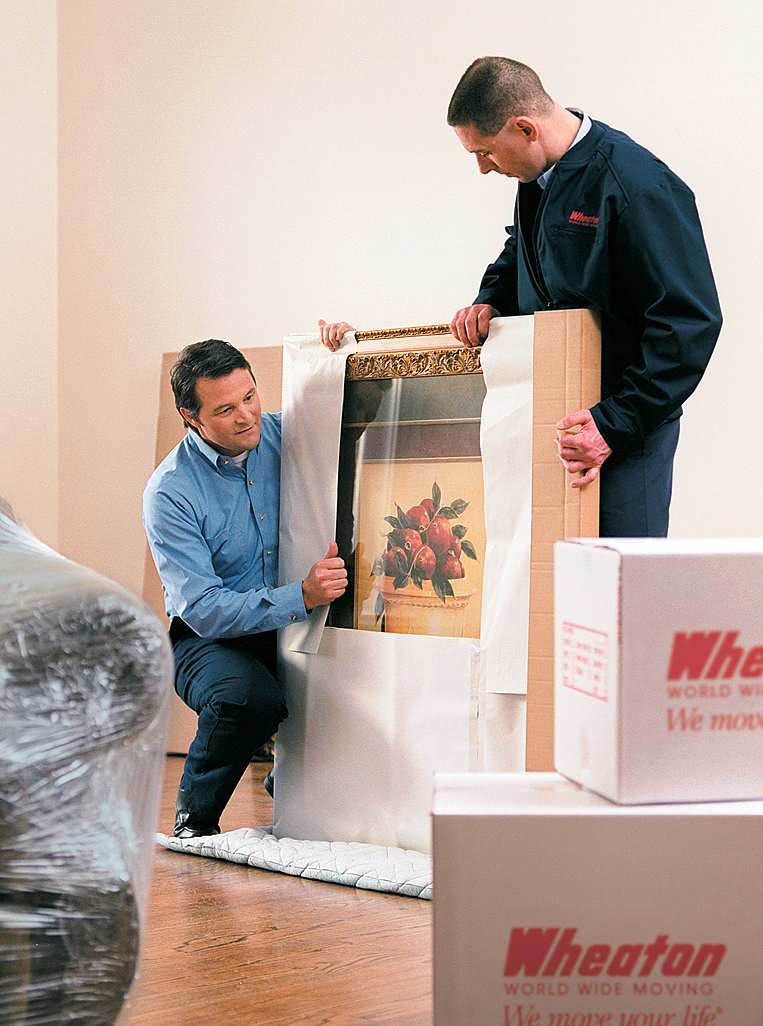
Learn how much you’ll pay to move a piano based on its size and weight, the distance you’re moving, and the services you require.
Shipping a car costs an average of $1,190 and is based on a variety of factors, including vehicle type, destination, and mileage.


Shipping a car costs on average $1,190, with prices ranging from as low as $500 to up to $2,500.
Factors influencing the cost include distance, vehicle size, transportation method, time of year, and delivery method.
Budgeting for car shipping helps ensure a smooth move without unexpected expenses.
Hiring a professional car shipping service can save time and reduce stress compared to driving the vehicle yourself.
This article was created using automation technology and thoroughly fact-checked and edited by HomeAdvisor Editor Ryan Noonan.
On average, shipping a car in the U.S. is $1,190, but car shipping prices can range from as low as $500 to $2,500 on the high end. Most people pay an average between $1,000 and $2,000.
Factors like distance, vehicle size, transportation method, and time of year can all impact the total cost. Planning ahead and hiring a professional car shipping service can help ensure a smooth and stress-free move.
Several factors can influence the overall cost of shipping your car. Below, we break down the major considerations you’ll need to take when building your budget and choosing a car shipping company.
The per-mile cost of shipping a car depends on how far you're travelling. The further you travel, the lower the per-mile cost will be. Depending on how far the car is traveling, you may also need to consider related expenses, such as surcharges for gas, tolls, and interstate transport. These are the average rates per mile for various distances.
500 miles: $1.20–$1.95
1,000–2,000 miles: $0.80–$1.30
2,000 miles: $0.70–$1.10
Due to higher truck demand, you can expect to pay more in the summer than in the winter. Fuel prices fluctuate throughout the year, often increasing during peak travel seasons like summer and holidays. Higher fuel prices can directly impact shipping costs. Fuel prices are one of the hidden moving costs that families often forget to budget for.
Shipping gets backed up in the final weeks of December, and companies are playing catch-up in January. Be prepared for prices to fluctuate with seasonal demand and fuel costs.
The size and weight of your vehicle significantly impact shipping costs. Larger and heavier vehicles like trucks and SUVs cost more to ship than smaller cars because they take up more space and increase fuel consumption during transport. The table below provides an overview of how vehicle size affects shipping costs.
| Vehicle Type | Average Cost (for 1,000 Miles) |
|---|---|
| Compact | $1,050 |
| Midsize | $1,190 |
| Midsize SUV or minivan | $1,300 |
| Midsize pickup truck | $1,300 |
| Large truck or SUV | $1,650 |
Luxury and vintage automobiles often require special care during transportation. Many insurance companies require enclosed transport for high-end vehicles, which can add an average of $800 to the cost. Enclosed transportation better protects your car from weather and road debris, but is more expensive because shipping companies can fit fewer vehicles using this method. Luxury and vintage automobiles cost an average of $300 to $1,300 more to ship domestically in an enclosed truck. Additionally, if you plan to ship a motorcycle, there are specialized companies that can assist you.
Where you're shipping to and from can impact the total cost. Moving from one big city to another will likely result in more competition for car shipping companies, which can drive prices down. On the other hand, if you're transporting your vehicle to a difficult-to-reach rural or mountainous area far off the beaten path, expect to pay premium car shipping prices. The cost to transport a car to a terminal is less than shipping it directly to your home, especially if your home is in a difficult-to-reach location. If you’re trying to save money when shipping your car, opt to pick it up at a terminal.
Depending on the company used, method of transportation, and additional factors, you may need to budget for various surcharges, such as:
Added space: Oversized vehicles need more space and can cost as much as double the normal price.
Insurance: People often opt to protect their rare or valuable vehicles, incurring extra charges; costs vary by carrier.
Taxes and import duties: The latter applies only if shipping from or to international locations.
Failed delivery: This can add a hefty surcharge of several hundred dollars. These sometimes occur because owners don’t make contact during the delivery window.
The method of transportation significantly influences the cost of shipping your car. While trucks are the most common option for domestic shipping, car shipping companies may also use trains, cargo ships, or even airplanes. The table below outlines the average costs associated with each transportation method for domestic shipping. Note that international shipping, especially by air, can be considerably more expensive.
| Freight Type | Cost Range (Domestic) |
|---|---|
| Train | $600–$1,005 |
| Truck | $600–$2,500 |
| Cargo ship | $1,000–$5,000 |
| Air | $5,000–$40,000 |
Car shipping costs between $600 and $1,005 via train. The passenger train is the most affordable option for shipping your car, but the limited route isn't suitable for most people.
To ship your vehicle by freight train, you'll need to work directly with a car shipping company, which can increase the overall price to ship your car.
The average price to ship a car by truck is $600 to $2,500. You can choose between:
Open-air or enclosed truck: Enclosed truck transport adds an extra cost.
Door-to-door service or terminal drop-off: The car shipping company will pick it up at your home for an extra fee, or you can drop it off at a shipping terminal to save money.\
Depending on the destination, you'll spend between $1,000 and $5,000 to ship your car via cargo ship. Cargo ships use enclosed containers.
Airplane transportation within the U.S. costs from $5,000 to $40,000, but shipping your car internationally by plane can cost up to $40,000. If you’re relocating overseas and need a stress-free move with an expensive classic or luxury vehicle, you may choose air over a cargo ship.
Hiring a car-hauling service costs between $550 and $2,500 on average, and may be higher for destinations like Alaska or Hawaii. When selecting a car shipping company, consider factors such as experience, insurance coverage, pricing, and customer reviews.
Your vehicle transport options include:
Driving or towing the vehicle yourself
Hiring a professional driver and covering the return travel costs
Hiring a moving company
Using a specialized car-hauling service
If you're already hiring a moving company for your belongings, they may offer vehicle transportation services directly or through a subcontracted specialty mover.
Whenever you're moving an expensive item, like a car, it's important to contact a well-established business with a good reputation. Start by checking online for reviews and background information, but also ask them about their experience directly.
Ask for proof of insurance from any company you hire. This proof should include information on the deductible, damage covered, caps, and any exclusions. Any company transporting your vehicle should offer insurance to protect it from damage.
Beware of automobile shipping companies that advertise "cheap" or "super-affordable" rates. Some companies keep their prices low by skimping on consumer protections or adding hidden fees, bloating the final price.
Check company reviews before making your final choice. Watch for red flags, like reviews with consistent complaints about damage, slow shipments, or customer service problems. Once you have checked reviews, get multiple quotes to compare against each other.
Shipping a car can add significant costs to your move, but these strategies can help reduce expenses:
Opt for open-carrier shipping: Choose open-air transport and consider terminal-to-terminal service instead of door-to-door delivery to save money.
Be flexible with scheduling: Booking your shipment during off-peak times, such as the winter months outside of holidays, can result in lower costs. Flexibility allows shipping companies to optimize routes and offer better rates.
Inquire about discounts: Many car shipping companies offer discounts for military personnel, first responders, seniors, students, returning customers, shipping multiple vehicles, or paying in cash. Don't hesitate to ask about available promotions.
Compare multiple quotes: Obtain at least three quotes from reputable companies, and compare services, insurance coverage, and any additional fees, not just the price. Always review customer feedback before making a decision.
While towing your vehicle yourself might seem cost-effective, coordinating a long-distance move can be complex and stressful. Hiring a professional car shipping service can alleviate stress, save time, and ensure your vehicle arrives safely at your destination. Consider consulting with a local car shipping professional to handle your vehicle transportation needs.
No place is more important than your home, which is why HomeAdvisor connects homeowners with local pros to transform their houses into homes they love. To help homeowners prepare for their next project, HomeAdvisor provides readers with accurate cost data and follows strict editorial guidelines. After a project is complete, we survey real customers about the costs to develop the pricing data you see, so you can make the best decisions for you and your home. We pair this data with research from reputable sources, including the U.S. Bureau of Labor Statistics, academic journals, market studies, and interviews with industry experts—all to ensure our prices reflect real-world projects.
From average costs to expert advice, get all the answers you need to get your job done.

Learn how much you’ll pay to move a piano based on its size and weight, the distance you’re moving, and the services you require.

Discover how to hire packers for moving and the best pro for the job. Learn pro services, costs, and tips to compare quotes and book with confidence.

Can you hire movers to load a moving truck? Learn who to hire, what they do, and costs and hourly rates before you book.

Wondering who moves sheds? See who to hire, how pros relocate sheds, and what it costs so you can plan a safe, stress-free move.

Who to hire to move furniture in your home? Learn why professional movers are best, how they work, and what costs to expect

Use this guide to budget for how much it costs to move a mobile home based on factors such as trailer size, moving distance, permits, and more.